Why Marketing Is Important For Small Business
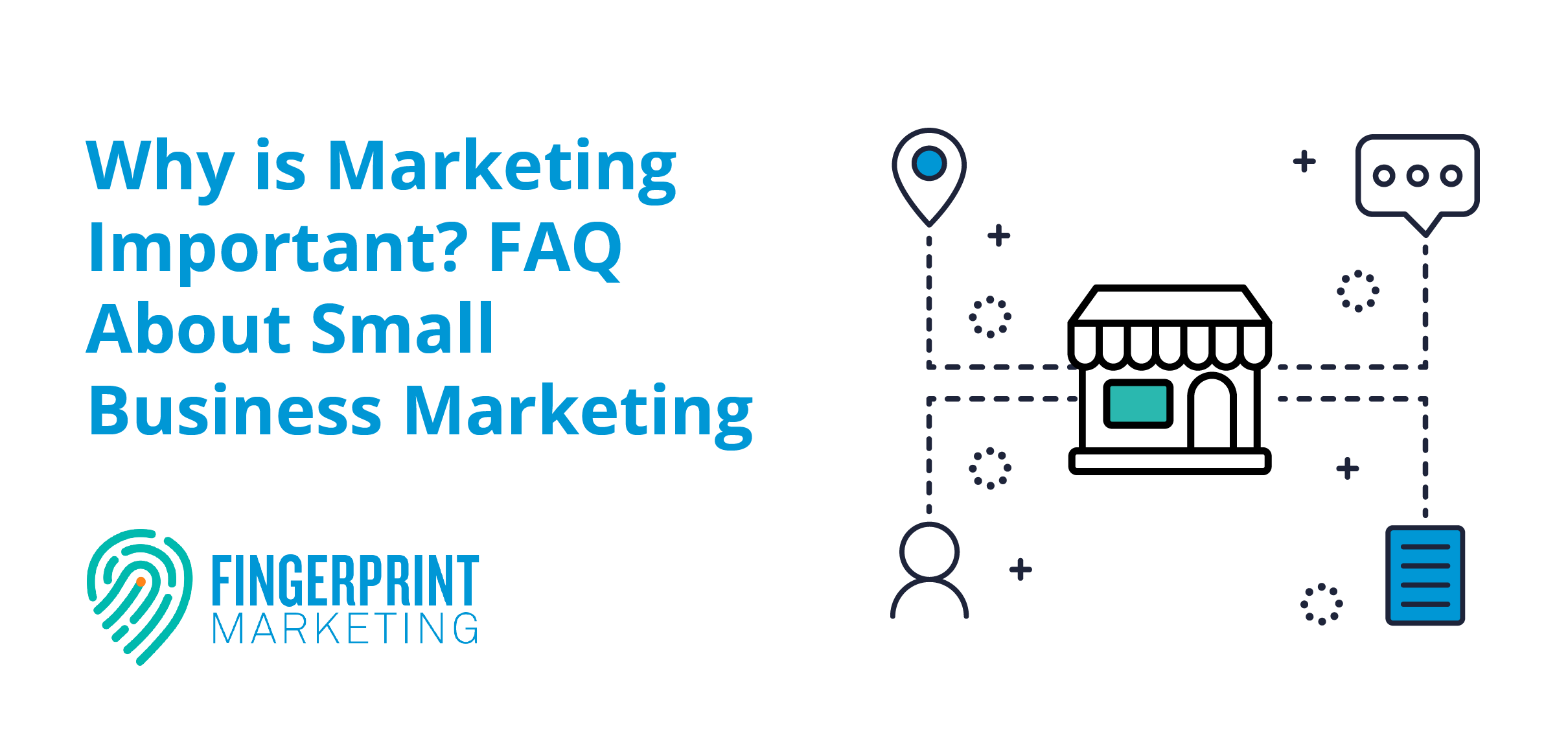
Did you know 99.99% of businesses in the U.S. are small businesses? How cool is that? And nearly 70% of marketers are actively investing in content marketing. We're going to make a big, bold claim to start this shindig: marketing has the power to make or break your business.
You don't just need marketing, however. To run a successful small or local business in this crazy, modern era, you need to execute your marketing strategically and intelligently.
In other words, your marketing minions ('scuse me, employees) need to know what the heck they're doing. And they must do what they do with excellence. No more faking-it-till-you're-making-it fluff. That's a surefire way to fall flat on your face and waste a whole lot of money.
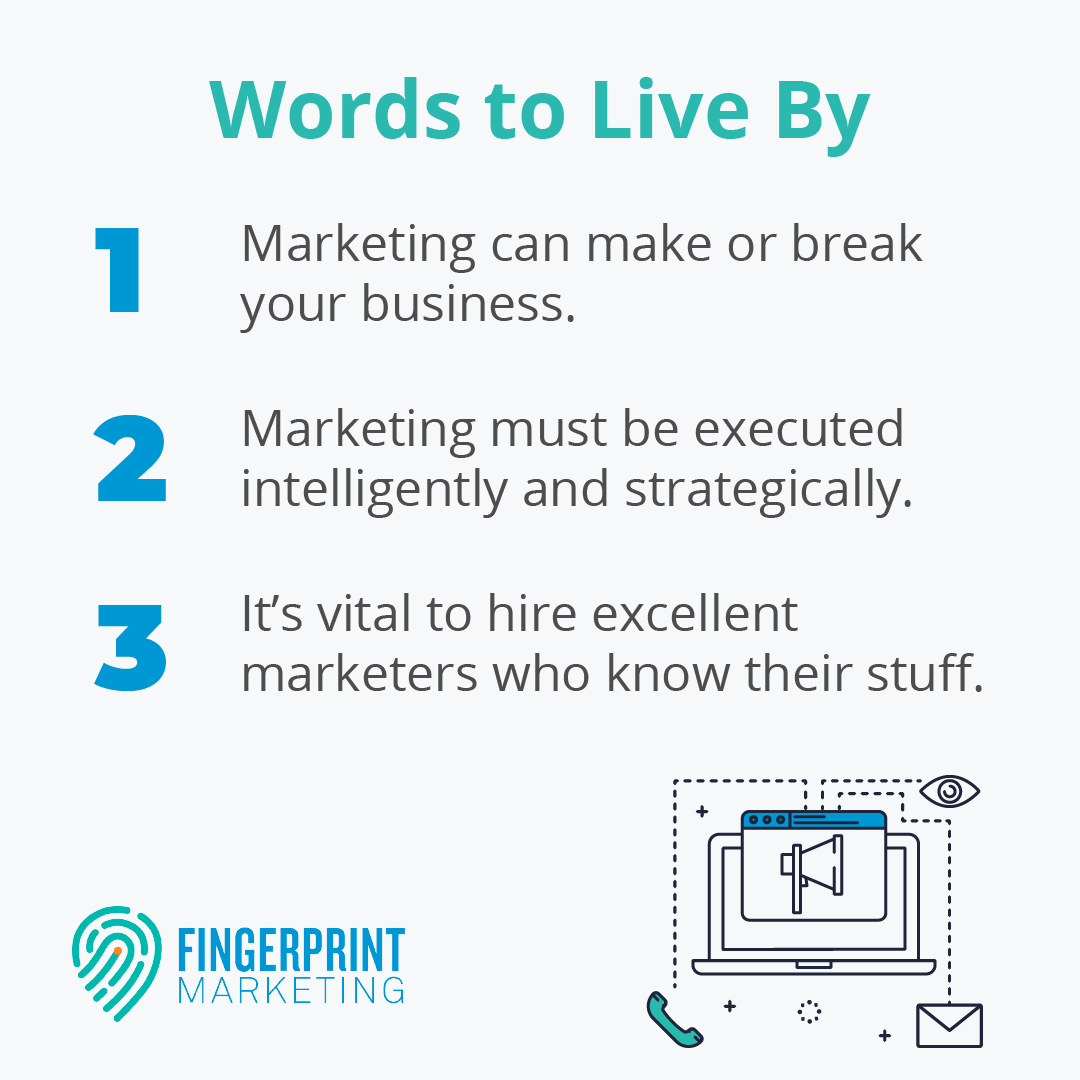
In this guide, we're going to cover – in-depth – why marketing is important. Then we'll go ahead and answer several other questions you've probably asked at some point in your business life – all in one neat package. You're welcome in advance.
Contents
- 1 Why is Marketing Important for Your Small Business?
- 1.1 1. It tells people what you have to offer.
- 1.2 2. It helps you get to know your target audience.
- 1.3 3. It helps your target audience get to know you.
- 1.4 4. It also helps you build trust.
- 1.5 5. It helps you grow your business.
- 2 What is Digital Marketing?
- 3 What is Content Marketing?
- 4 Which Social Media Platforms Should Your Business Be Using?
- 5 How Can You Tell if Your Marketing is Working?
- 5.1 What is quantitative marketing?
- 5.2 What is qualitative marketing?
- 6 What is the Buyer's Journey?
- 7 What Are SMART Goals?
- 8 What Are Conversions?
- 9 How Often Should You Update Your Small Business Website?
- 10 What is Outsourced Marketing?
- 11 A Brilliant Marketing Solution for Your Small Business
Why is Marketing Important for Your Small Business?
Marketing is important because it allows you to share your products and services with a niche audience strategically. It helps you tell, show, and PROVE to people how terrific your business is and how you can help them. You can also educate people on topics related to your business, including how to solve common problems and which solutions are best.
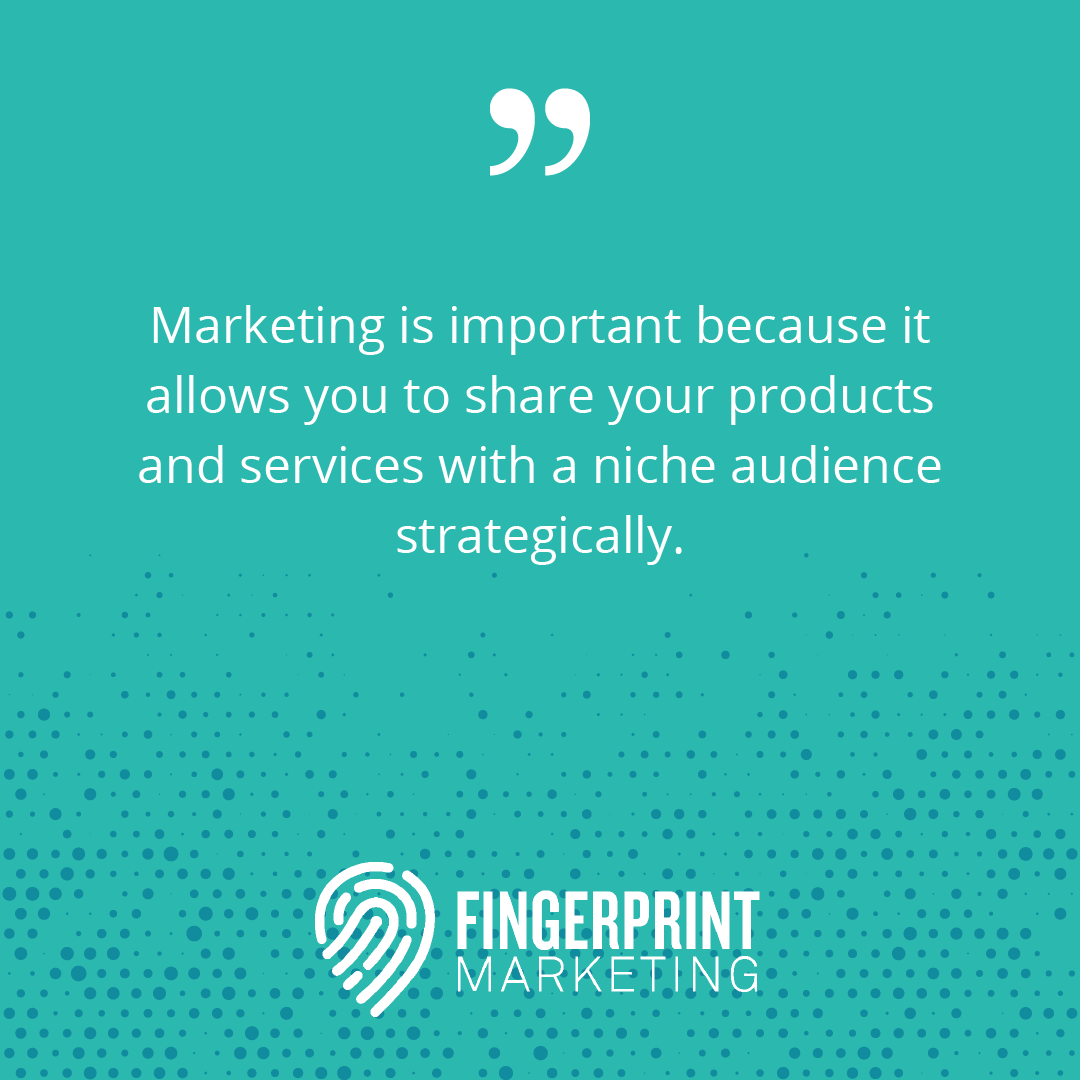
A small-business survey conducted by Campaign Monitor found that 78% of respondents plan to increase their spending on digital marketing moving forward.
Another stat said eight out of ten online stores fail within 24 months of business! And that's largely due to problems with branding and a lack of good marketing .
Without marketing, your business doesn't have a voice. Without a voice, you can't reach people and connect with them. And without connection and communication, you're left with not much more than a product or service, just sitting there…alone…in the dark.
Yeah, it can get pretty scary.

Here are five specific reasons why marketing is essential for your small business in the 2020s.
1. It tells people what you have to offer.
The primary purpose of marketing is to get the word out about your business: who you are and what products or services you offer.
Create brand awareness, help people understand your business in-depth, and keep loyal customers happy so they tell their friends and keep coming back for more.
2. It helps you get to know your target audience.
Marketing isn't JUST for your customers' eyes and ears. You can also gain valuable insight into who your target audience is (those who love you already).
Get to a place where you deeply understand their desires, needs, and problems. Figure out how you can reach them where they are and connect with them in meaningful ways. According to Forbes , consumers will spend about 48% more while shopping online if they have a personalized experience.
Knowing your target audience well will help you improve all of your marketing efforts so you can avoid wasting your budget by getting in front of the wrong dang people (those who don't care a little about you).
3. It helps your target audience get to know you.
Share your brand story with potential customers. Make it personal. Let them get to know who you are, why your business started in the first place, and what you believe. Making your business relatable will enable people to connect emotionally with your story.
People want to support businesses they believe in. So be authentic by sharing your personal, relatable story creatively. And you'll soon build a lovely following of loyal supporters and evangelists.
4. It also helps you build trust.
Building trust with consumers, just like any relationship, takes time and effort. You need to prove that your small business is credible, ethical, moral, genuine, and socially responsible. A whopping 81% of people , after all, buy from brands they trust.
You don't earn the "trustworthy" status on a whim. You have to be intentional when forming your marketing messages and communicating with people.
Consider implementing social responsibility practices, like ensuring your products are ethically sourced. Or adopt a noble social cause, such as giving a percentage of your revenue to charity. People will love you for it and choose to buy from you over competitors.
5. It helps you grow your business.
Building your reputation through effective marketing will naturally lead to growth and increased revenue for your business. If your offerings are as good as you describe them, you'll build a loyal base of customers who will spread the word for you! Did you know that new customers discover 85% of small businesses through word-of-mouth marketing? It's basically the best.
What is Digital Marketing?
Digital marketing involves promoting your business, educating people, and selling products and services online to a target audience. You can do this effectively using various channels, including social media, your business website, search engines, email marketing, video, a podcast, or your blog.
What is Content Marketing?
Content marketing is a strategy that focuses on creating content and distributing it in a way that reaches a specific audience. The goal, ultimately, is to get people to convert into customers by making a purchase. But to get there, you often need to build trust over time by offering various types of content, like blog articles, video, email, social media posts, webinars, ebooks, or podcast episodes.
Content marketing is a long-term strategy. Once you gain your target audience's allegiance, you'll gain loyal customers and advocates for your brand.
The Content Marketing Institute found that 96% of top content marketers say their audience views their businesses as credible and trustworthy. And 68% of all B2B marketers agree that content marketing has helped them successfully build credibility with their followers.
Each social media platform appeals to different demographics. We usually recommend choosing a couple to focus on to avoid spreading yourself too thin. Just be sure to pick the appropriate platforms for your target audience and niche.
- Facebook: the largest platform by far, suitable for advertising, lead generation, and building relationships (primarily targets individuals ages 25 to 54)
- Instagram: the go-to platform for influencer marketing , building brand awareness, developing relationships, and selling unique products and services (targets individuals ages 18 to 49 )
- Twitter: a fast-paced platform where you can engage with individuals looking for breaking news, announcements, and easily digestible content (targets individuals under 50)
- LinkedIn: for B2B companies looking to generate leads, share editorial content, and build authority in a specific industry (targets individuals ages 30 to 49)
- Pinterest: a highly visual, graphics-heavy platform ideal for driving sales (targets women)
- TikTok: a fun, bold, video-driven platform for posting short comedy, dance, and talent videos (targets teens and young adults)
- YouTube: for publishing short- and long-form entertainment, instructional videos, documentaries, and more, second most-visited platform after Google (primarily targets teens and young adults but attracts viewers of all age groups)
How Can You Tell if Your Marketing is Working?
To determine whether your marketing strategies are effective, you first need to set goals. Then you need to measure your results over a specific period.
There are two ways to measure your marketing results. One way is through qualitative marketing, and the other is through quantitative marketing.
What is quantitative marketing?
Quantitative marketing is measurable. Think about the number of Facebook likes you have, how many people opened your last email, or how much traffic your website gets monthly. Those are all quantitative measurements. Tracking these types of numbers can show you whether your business is growing over time.
What is qualitative marketing?
Qualitative marketing involves measuring intangible results. Examples include building credibility and authority online, increasing brand awareness, and creating relationships with potential customers. Qualitative marketing provides your business with deep insight into why your customers interact with you and make purchases.
For high-quality, comprehensive insights, you should set both qualitative and quantitative marketing goals. Then you can measure your results over time to see how your business is performing and whether your marketing efforts are successful.
What is the Buyer's Journey?
The buyer's journey is a path that consumers follow to make a purchase. It breaks down into three stages: awareness, consideration, and decision. Your website's job is to lead people through the buyer's journey by addressing individuals at every step.

People in the awareness stage are just becoming aware of the problem they have. They want to learn more and often seek educational videos and blog posts to answer their questions.
Once someone reaches the consideration stage, they are well aware of their problem and are hunting for solutions. This usually involves researching various companies to see which one can solve their problem best.
In the final stage, people are ready to make a decision (and a purchase!). Your job is to offer the best solution out there – clearly and authentically.
What Are SMART Goals?
In marketing, making and aiming for SMART goals can be one of the most effective ways to grow your business. SMART stands for:
- Specific
- Measurable
- Attainable
- Relevant
- Time-bound
An example of a SMART goal is "to reach 15,000 followers on Instagram by June 1, 2021."
What Are Conversions?
A conversion happens when you get someone to take the desired action. For example, someone can convert from a potential lead into a real lead by filling out a form or subscribing to your blog. Someone can convert from a lead into a customer by making a purchase.
How Often Should You Update Your Small Business Website?
If you're talking about a website redesign, that project should be done (or considered) about once a year. You should execute various other updates much more frequently. Here are some examples:
- Weekly: Update plugins and software, publish new blog posts
- Monthly: Update blog posts, run security scans, analyze load speed, and make adjustments as needed
- Quarterly: Test your website on various devices, update ad and marketing campaigns, tweak forms and calls to action, optimize page titles and meta descriptions
- Yearly: Update stats and other dated content, renew your website domain, consider a website redesign, update top-performing blog posts, update/optimize all content
You'll find a more exhaustive list of regular website updates on our web maintenance page .
What is Outsourced Marketing?
Outsourcing your marketing is hiring someone outside of your company to handle your marketing for you. It's much more cost-effective for many small and local businesses than hiring an in-house marketing team or full-time employee.
A marketing agency can take care of the graphic design, content marketing, email marketing, strategy, social media, website maintenance, SEO, and a whole bunch of other stuff for you, so you can focus on what you love and do best.
A Brilliant Marketing Solution for Your Small Business
If you're ready to dive into a new marketing endeavor to drive traffic to your website, convert leads into customers, and grow your business, we're prepared to help.

Contact us today to book a free consult with the team!
Why Marketing Is Important For Small Business
Source: https://fingerprintmarketing.com/why-is-marketing-important/
Posted by: johnwasion.blogspot.com


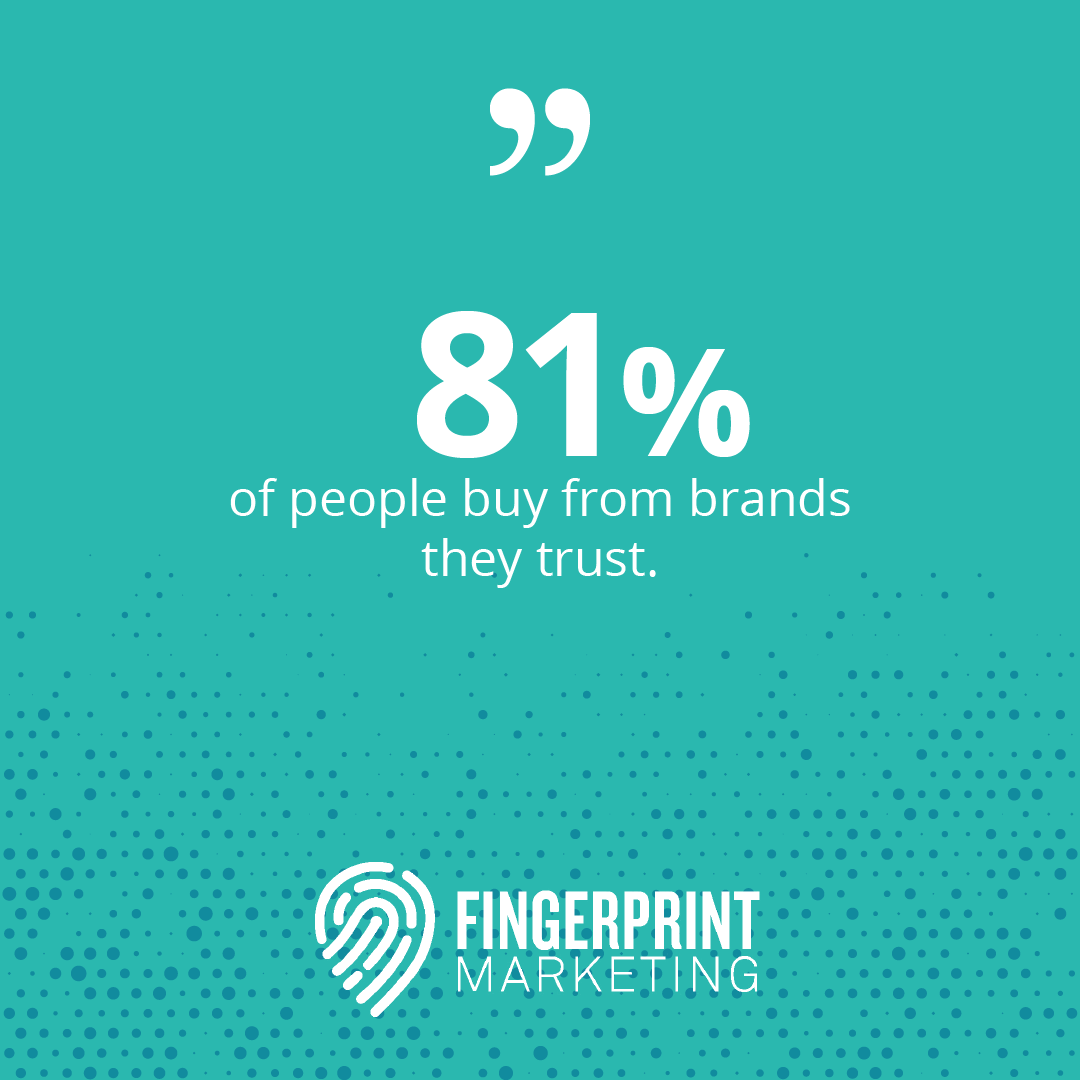
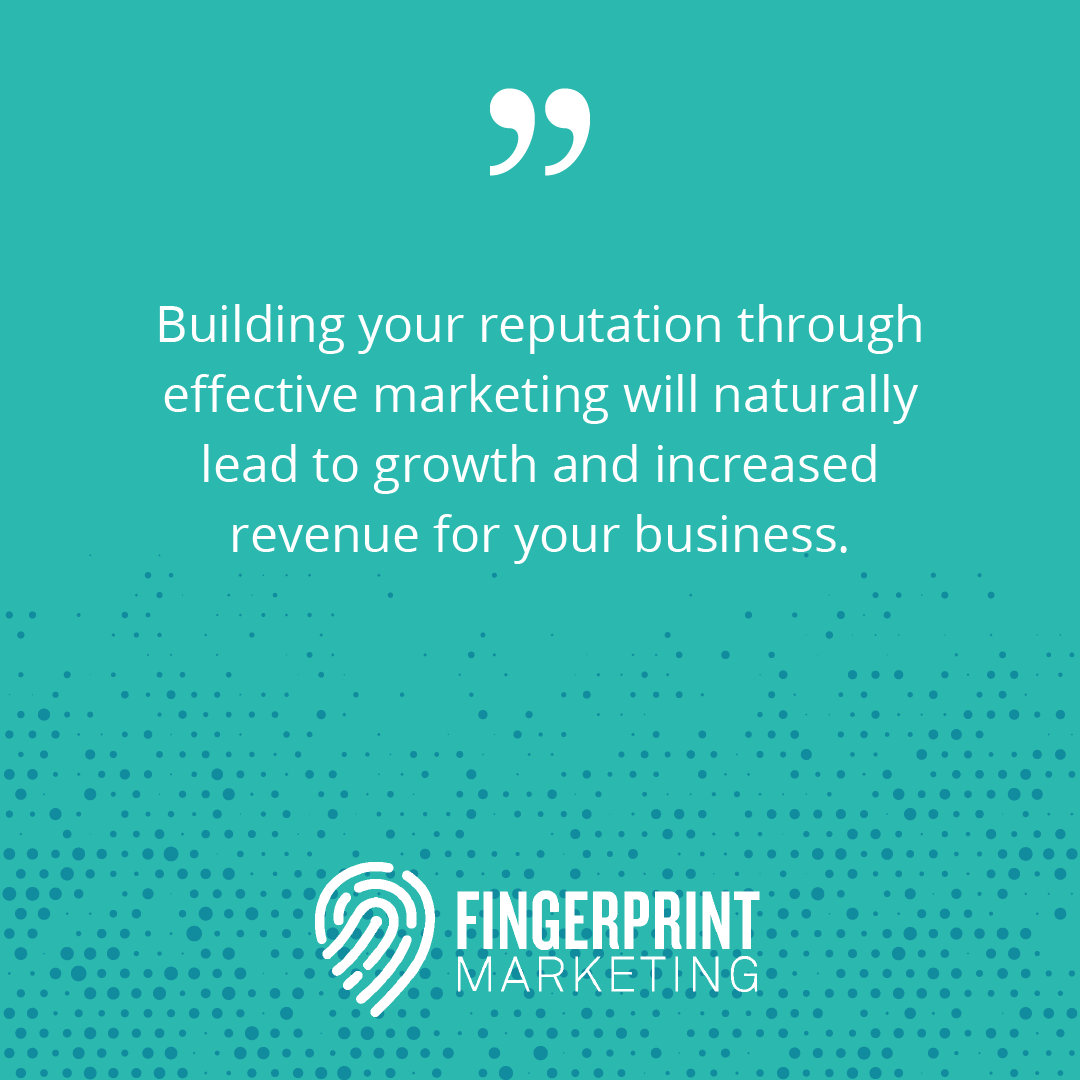
0 Response to "Why Marketing Is Important For Small Business"
Post a Comment